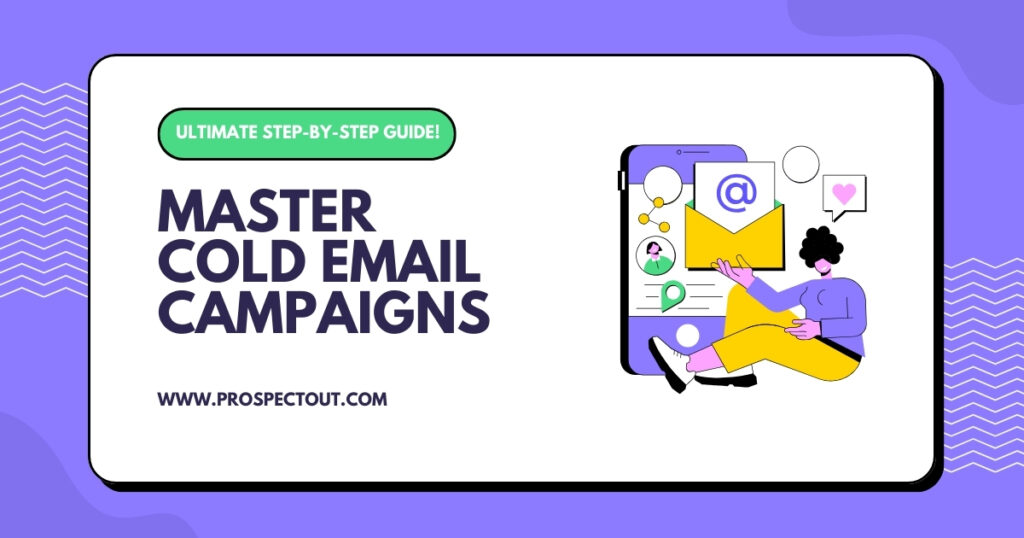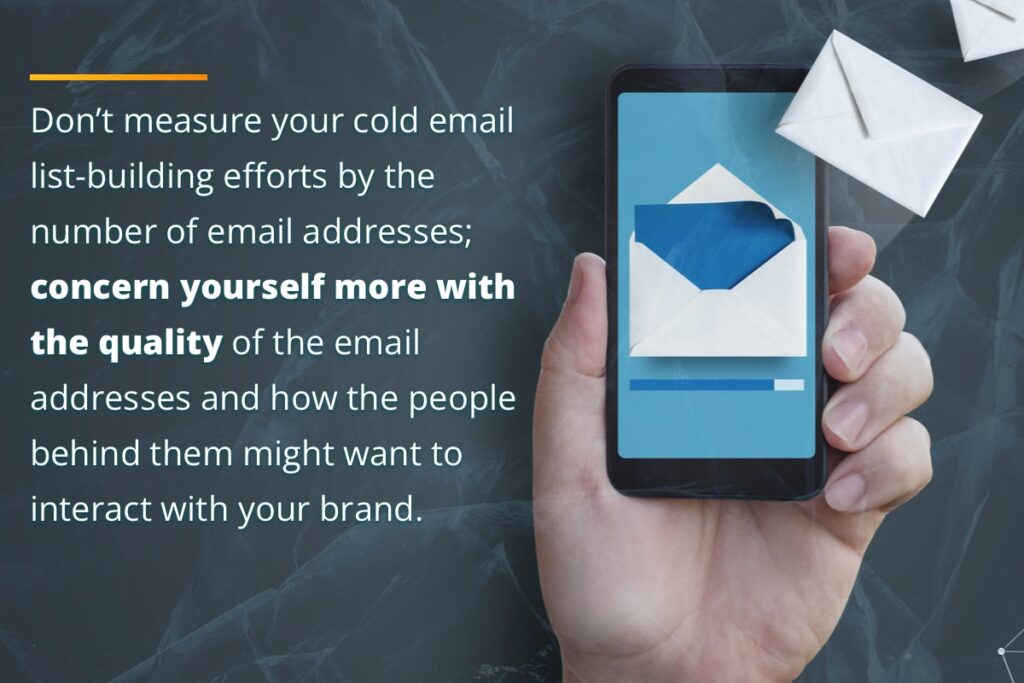Personalize your emails and keep them short. Follow up consistently to increase your response rate.
Cold email outreach can be an effective way to generate leads and build connections if done correctly. Personalization is crucial; tailor each email to the recipient to make it relevant and engaging. Keep your messages brief and to the point, respecting the recipient’s time.
Consistent follow-ups are essential, as they show persistence and increase your chances of getting a response. Always include a clear call to action to guide the recipient on the next steps. By focusing on these key elements, your cold email outreach efforts can yield better results and help you achieve your goals.
Table of Contents
Crafting The Perfect Subject Line
In the competitive world of cold email outreach, the subject line is crucial. It determines if your email gets opened or ignored. Crafting the perfect subject line increases your open rates and engagement. Here are some essential tips to create compelling subject lines.
Keep It Short
Short subject lines work best. They grab attention quickly. Aim for 5-7 words. This makes it easy for recipients to read at a glance. Long subject lines often get cut off. Keep your message clear and concise.
Use simple language. Avoid complex words. Short sentences are easier to understand. They also look better on mobile devices.
| Short Subject Line | Long Subject Line |
|---|---|
| Quick Question | I have an important question about your recent project |
| Need Your Help | Can you help me with this particular issue? |
Spark Curiosity
Curiosity drives people to open emails. Use this to your advantage. Ask intriguing questions or make bold statements. Leave your recipient wanting more.
- Example: “Have You Seen This?”
- Example: “Important Update Inside”
These subject lines create a sense of urgency and mystery. They make the reader curious about the content.
Combine curiosity with relevance. Ensure your subject line relates to the email content. This builds trust and improves open rates.
Personalizing Your Email
Personalizing your email is crucial for successful cold email outreach. It helps build a connection with the recipient. Personal touches increase open rates and responses.
Research Your Recipient
Before sending your email, research your recipient. Understand their role, interests, and needs. Use resources like LinkedIn or company websites.
- Visit their LinkedIn profile
- Check their recent posts or activities
- Look at the company website for insights
Gathering information helps you craft a relevant message. It shows you care and are not sending spam.
Use Their Name
Always use the recipient’s name in your email. It makes the email feel personal. Avoid using generic greetings like “Dear Sir/Madam”.
| Generic Greeting | Personal Greeting |
|---|---|
| Dear Sir/Madam | Hi John |
| To Whom It May Concern | Hello Sarah |
Using the recipient’s name captures their attention. It makes them feel valued.
Compelling Opening Lines
Cold email outreach is a powerful tool for reaching new clients. The success of your outreach often hinges on the opening lines. These lines need to hook the reader quickly. Let’s explore some tips to craft compelling opening lines.
Grab Attention
The first sentence is crucial. It should grab the reader’s attention instantly. Use a bold statement or a surprising fact. For example:
- “Did you know that 70% of emails go unread?”
- “Imagine boosting your sales by 30% this month.”
Such lines make the reader curious. They will want to read more. Always keep it short and direct.
Set The Tone
Once you have their attention, set the tone for your email. Be friendly and professional. Use a tone that matches your brand. Avoid jargon and keep it simple. Avoiding common mistakes like using jargon or overly complex language can keep your emails straightforward and easy to read. Here are some examples:
- “I hope this email finds you well.”
- “I’m excited to share some insights with you.”
These lines are warm and inviting. They make the reader feel valued.
| Tips | Examples |
|---|---|
| Use their name | “Hi John, I noticed your recent work on…” |
| Personalize the message | “I saw your post on LinkedIn about…” |
Personalization shows that you did your homework. It builds trust quickly.
Value Proposition
Creating a strong value proposition is essential for successful cold email outreach. It shows recipients why they should care about your offer. Let’s break down the key elements to make your value proposition irresistible.
Highlight Benefits
Focus on the benefits your product or service offers. People want to know what’s in it for them.
- Explain how it saves time.
- Show how it reduces costs.
- Demonstrate how it boosts productivity.
Use bullet points to make benefits clear and easy to read. For instance:
| Feature | Benefit |
|---|---|
| Automated Reports | Saves you 10 hours a week |
| Cloud Storage | Access files from anywhere |
Solve A Problem
Identify the problems your recipients face. Show them how you can solve these problems.
- Identify a common issue in their industry.
- Explain how your solution addresses this issue.
- Provide proof, like case studies or testimonials.
Use real-world examples to make your points stronger. For example, “Our software reduced downtime by 50% for Company X.”
Keep your message concise. Focus on how your solution makes their lives better.
Call To Action
Your call to action (CTA) is a crucial part of your cold email. A well-crafted CTA can turn a reader into a customer. A weak CTA, however, can lose the reader’s interest. Let’s explore how to make your CTA effective and compelling.
Be Clear
A clear CTA leaves no room for confusion. Tell your reader exactly what you want them to do. Use simple, direct language. For example:
- Schedule a call now
- Download the free guide
- Sign up today
Make sure your action verbs are strong and specific. Avoid vague terms like “Click here” or “Learn more”. Your reader should understand the benefit of taking action.
Create Urgency
Creating a sense of urgency can motivate your reader to act quickly. Use phrases that imply time sensitivity. Examples include:
- Offer ends soon
- Limited spots available
- Act now to save
Urgency can make your reader feel they might miss out. This can push them to take immediate action.
| Weak CTA | Strong CTA |
|---|---|
| Click here | Download your free guide now |
| Learn more | Sign up today to get started |
Remember, a strong CTA can significantly boost your email’s effectiveness. Be clear and create urgency to guide your reader’s actions.
Follow-up Strategy
Cold email outreach can be a powerful tool for generating leads. A critical element of this process is the follow-up strategy. Crafting effective follow-ups can increase your response rate significantly. Here are some tips to optimize your follow-up approach.
Timing Matters
Timing is crucial in cold email follow-ups. Sending follow-ups too soon can be annoying. On the other hand, waiting too long can make your email irrelevant. Adjust your follow-up intervals based on your industry, and consider the best time to send an email for optimal response rates.
Consider these intervals for your follow-up emails:
| Follow-Up Number | Days After Initial Email |
|---|---|
| First Follow-Up | 3-4 days |
| Second Follow-Up | 6-7 days |
| Third Follow-Up | 10-12 days |
Adjust these intervals based on your industry and target audience. Consistent follow-ups keep your email on the recipient’s radar.
Vary Your Approach
Using the same message in each follow-up can be ineffective. Varying your approach keeps your emails fresh and engaging.
Consider these tips for varying your follow-up emails:
- Change Your Subject Line: Use different headlines to grab attention.
- Alter Your Message: Focus on different benefits or features.
- Include New Information: Share recent updates or relevant news.
- Use Different Formats: Mix plain text with visual content.
Changing your approach shows your versatility and keeps your emails interesting. This increases the likelihood of a response.
Avoiding Spam Traps
Cold email outreach can be effective if done right. But you must avoid spam traps. These traps can harm your sender reputation and block your emails. Follow these tips to avoid common pitfalls.
Use A Professional Email
Always use a professional email address. Avoid using free email services like Gmail or Yahoo. They are often flagged by spam filters.
Create a business email with your domain name. This looks more credible and trustworthy. For example, use you@yourcompany.com instead of you@gmail.com.
Ensure your email has a proper signature. Include your full name, title, and contact details. This adds authenticity to your email.
Understanding the legality of sending unsolicited emails can help you avoid spam traps and ensure your outreach remains compliant.
Mind Your Language
Use simple, clear, and polite language. Avoid using all caps or too many exclamation marks. These are red flags for spam filters.
Personalize your emails. Use the recipient’s name and mention their company. This shows you took the time to research them.
Be concise and get to the point quickly. Busy professionals appreciate short, relevant emails. Avoid using spammy words like “free”, “guarantee”, or “limited offer”.
Here is a table of common spam trigger words to avoid:
| Spam Trigger Words |
|---|
| Free |
| Guarantee |
| Limited Offer |
| Act Now |
| Click Here |
By using these tips, you can improve your cold email outreach. Avoiding spam traps ensures your emails reach the intended recipients.

Credit: www.pandadoc.com
Analyzing And Optimizing
Cold email outreach can be powerful. To see results, analyzing and optimizing is key. This involves tracking metrics and using A/B testing. Both help improve your outreach efforts.
Track Metrics
Tracking metrics helps you understand your cold email performance. Important metrics include open rates, click-through rates, and response rates. Use these metrics to see what works and what doesn’t.
Tracking your open and click-through rates can help identify areas for improvement, ultimately allowing you to improve your response rates.
Here’s a simple table to track your metrics:
| Metric | Description |
|---|---|
| Open Rate | Percentage of opened emails |
| Click-Through Rate | Percentage of clicked links in emails |
| Response Rate | Percentage of replies to your emails |
Tracking these metrics helps you adjust your strategy. Aim for higher open rates and more responses.
A/b Testing
A/B testing is comparing two versions of an email. You send version A to one group and version B to another. Then, measure which performs better.
Important elements to test include:
- Subject Lines: Try different phrases to see which gets more opens.
- Email Content: Test different messages to find the most engaging.
- Call-to-Action: Experiment with various CTAs to boost clicks.
To conduct A/B testing:
- Choose one element to test.
- Create two versions of your email.
- Send each version to a small group.
- Track the performance of each version.
- Use the better-performing version for your main campaign.
Regular A/B testing helps you refine your emails. This leads to more effective outreach over time.

Credit: www.postal.com
Frequently Asked Questions
What Is Cold Email Outreach?
Cold email outreach is the process of sending emails to potential clients or contacts without prior communication. It aims to build relationships, generate leads, or make sales.
How Do I Write An Effective Cold Email?
To write an effective cold email, personalize your message, keep it concise, and focus on the recipient’s needs. Include a clear call to action.
What Are Common Mistakes In Cold Emailing?
Common mistakes in cold emailing include lack of personalization, too lengthy messages, and unclear call to action. Avoid generic templates.
How Many Follow-ups Are Ideal?
Ideally, you should send 3-4 follow-up emails. Space them out by a few days. Persistence shows interest but avoid being spammy.
Conclusion
Mastering cold email outreach can significantly boost your business connections and opportunities. Apply these tips to refine your strategy. Consistent practice and personalization are key. Measure your results, adjust as needed, and stay persistent. Success in cold email outreach is achievable with dedication and the right approach.



